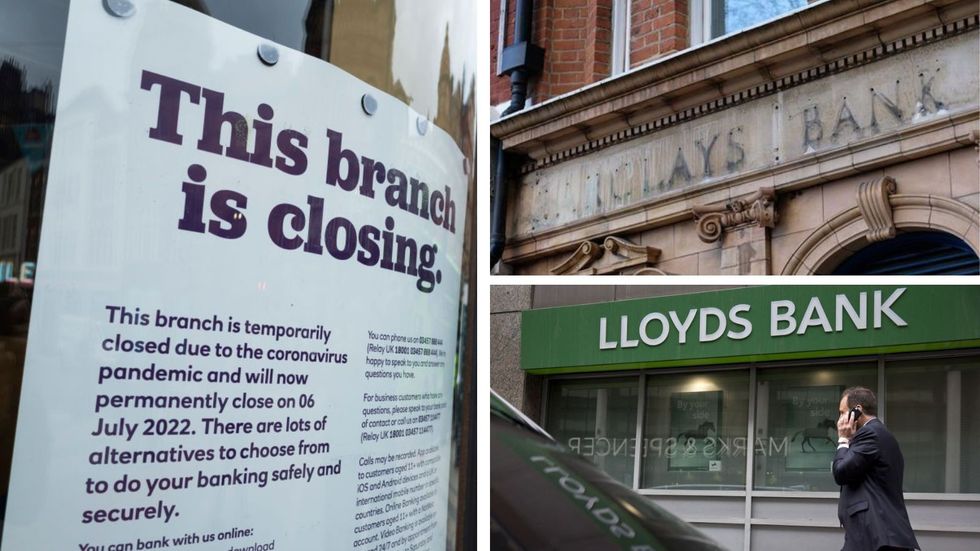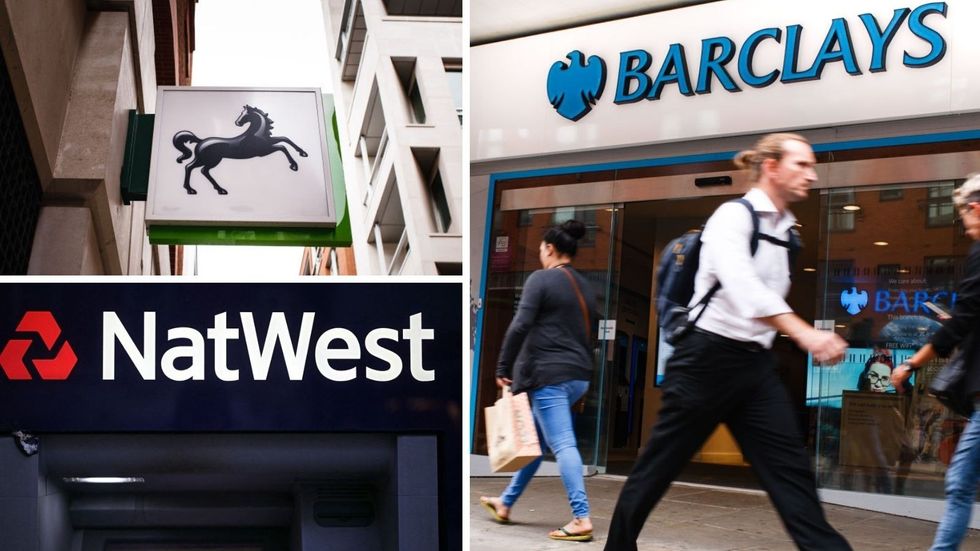Bank branch closures could be put on ‘pause’ under new rules as banks told to ‘justify’ decisions
High street banks, such as Barclays, NatWest and Lloyds Banking Group, could be told to “pause” branch closures under new rules.The UK’s financial regulator has told banking groups to protect Britons who are more reliant on cash.Speaking to MPs, the Financial Conduct Authority (FCA) said it has been in consultations with the Government about new powers which could affect bank branch closures going forward.High street banks and building societies would have to explain why a branch has shut down and what alternative options are in place to support vulnerable consumers.Do you have a money story you’d like to share? Get in touch by emailing money@gbnews.uk.GB News has previously covered the slew of branch closures which have been implemented in recent years by major banks, including Barclays, Lloyds and NatWest.David Geale, the FCA’s director of Retail Banking, told the Treasury sub-committee the regulator would have the power to make sure banks provide alternative facilities to customers who use cash.He noted that the FCA would be unable to prevent a branch closure but could “direct” financial institutions to have a different source of cash in place.Mr Geale explained: “We do not have the powers currently to intervene in the way that the legislation will give us, so we cannot stop branch closures at the moment.“We have issued some branch closure guidance and work with firms to make sure that they do a proper analysis when they are closing those branches, in terms of the needs of future communities.“The legislation gives us further powers to intervene in terms of the assessments that need to be done, the transparency that needs to come from banks and our ability to insist on there being solutions—not necessarily particular solutions, but solutions that are appropriate for those communities.”This law change will likely not come into force until the third quarter of this year, according to the regulator’s director.Under the legislation, the FCA will have the power to require banks to carry out an assessment of any closures which allow communities to say whether there is a “discrepancy” in banking services. LATEST DEVELOPMENTS:Santander shares how homeowners can become ‘mortgage free’ soonerOctopus Energy launches new rewards for 1 million customersNS&I saver with just £10 in Premium Bonds wins £50,000He added: “To take your example, if branches have closed now but when the new rules come in there is a gap identified, we would expect it to be filled at that point.“In the meantime, we will continue to supervise to our branch closure guidance. The major firms have agreed that, where an assessment is carried out that identifies the need for a banking hub, they will pause their closures for up to 12 months to ensure that that is up and running first.”According to Which?, more than 5,800 branches have shut down since 2015 which has disproportionately affected those living in rural areas and with mobility areas.This comes to a rate of 54 branches a month with NatWest Group closing 1,333 branches, the most of any banking group.GB News has contacted Lloyds Banking Group, NatWest Group and Barclays for comment.

High street banks, such as Barclays, NatWest and Lloyds Banking Group, could be told to “pause” branch closures under new rules.
The UK’s financial regulator has told banking groups to protect Britons who are more reliant on cash.
Speaking to MPs, the Financial Conduct Authority (FCA) said it has been in consultations with the Government about new powers which could affect bank branch closures going forward.
High street banks and building societies would have to explain why a branch has shut down and what alternative options are in place to support vulnerable consumers.
Do you have a money story you’d like to share? Get in touch by emailing money@gbnews.uk.

GB News has previously covered the slew of branch closures which have been implemented in recent years by major banks, including Barclays, Lloyds and NatWest.
David Geale, the FCA’s director of Retail Banking, told the Treasury sub-committee the regulator would have the power to make sure banks provide alternative facilities to customers who use cash.
He noted that the FCA would be unable to prevent a branch closure but could “direct” financial institutions to have a different source of cash in place.
Mr Geale explained: “We do not have the powers currently to intervene in the way that the legislation will give us, so we cannot stop branch closures at the moment.
“We have issued some branch closure guidance and work with firms to make sure that they do a proper analysis when they are closing those branches, in terms of the needs of future communities.
“The legislation gives us further powers to intervene in terms of the assessments that need to be done, the transparency that needs to come from banks and our ability to insist on there being solutions—not necessarily particular solutions, but solutions that are appropriate for those communities.”
This law change will likely not come into force until the third quarter of this year, according to the regulator’s director.
Under the legislation, the FCA will have the power to require banks to carry out an assessment of any closures which allow communities to say whether there is a “discrepancy” in banking services.
LATEST DEVELOPMENTS:
- Santander shares how homeowners can become ‘mortgage free’ sooner
- Octopus Energy launches new rewards for 1 million customers
- NS&I saver with just £10 in Premium Bonds wins £50,000

He added: “To take your example, if branches have closed now but when the new rules come in there is a gap identified, we would expect it to be filled at that point.
“In the meantime, we will continue to supervise to our branch closure guidance. The major firms have agreed that, where an assessment is carried out that identifies the need for a banking hub, they will pause their closures for up to 12 months to ensure that that is up and running first.”
According to Which?, more than 5,800 branches have shut down since 2015 which has disproportionately affected those living in rural areas and with mobility areas.
This comes to a rate of 54 branches a month with NatWest Group closing 1,333 branches, the most of any banking group.
GB News has contacted Lloyds Banking Group, NatWest Group and Barclays for comment.







































